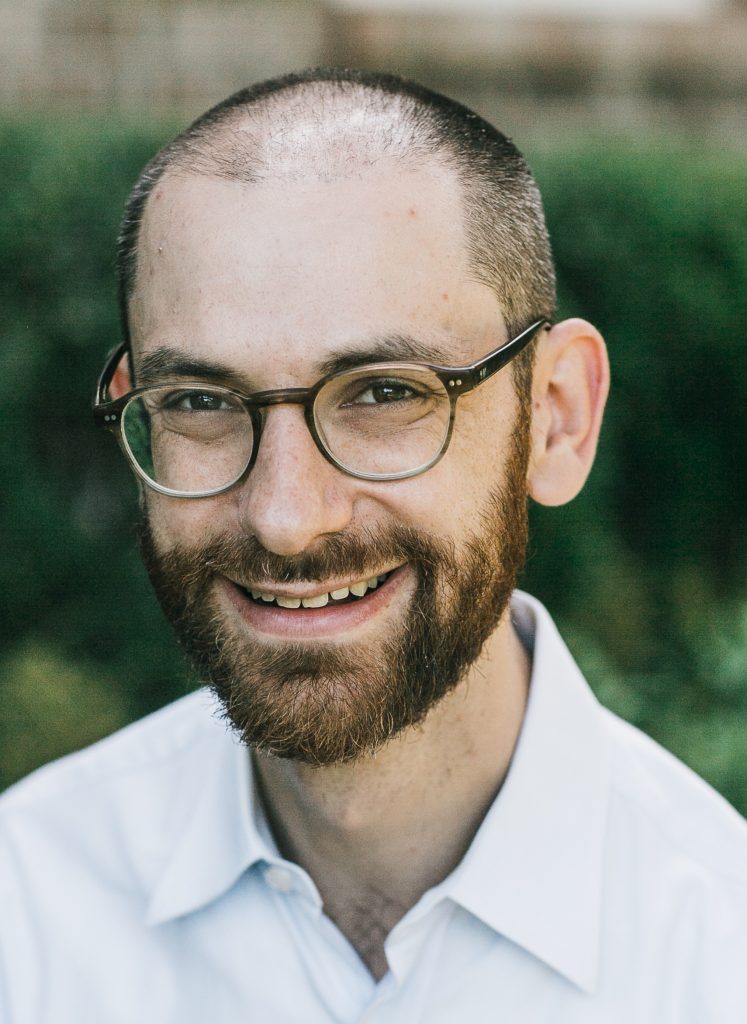Following the recent news by Times Higher Education that the University of Oxford ranks first in the top ten universities worldwide for computer science, we’re delighted to introduce new Tutorial Fellow and Associate Professor of Computer Science Dr Seth Flaxman, whose research during the pandemic has guided public health policy to help save lives.
If you’ve spent any part of the last eighteen months diligently watching coronavirus updates on TV, it’s quite possible you might have unknowingly seen something of Dr Seth Flaxman’s recent academic work. His research involves developing new computational statistics and machine learning methods for public policy and global health applications. In the past, his work has covered a range of topics and challenges, from voting patterns and trends in avoidable blindness to investigating AI and machine learning in criminology. With the emergence of COVID-19 in early 2020, his expertise turned to modelling and understanding the virus and its impact.
As a Senior Lecturer in Statistical Machine Learning at Imperial College’s Department of Mathematics at the time, Seth worked alongside departmental colleagues and in collaboration with a number of modelling and analytics experts in the field of infectious diseases, on a novel set of statistical and epidemiological models to track the spread of the disease. Their research in March 2020 provided estimates on the number of lives saved across Europe by non-pharmaceutical interventions like lockdowns and social distancing. He also helped create a map of COVID-19 hotspots in the UK, updated daily, and led the first study of global orphanhood associated with the pandemic.
As a result of this work and his ongoing research in applying statistics and AI, through machine learning, to public health, Seth was one of five young academics worldwide to be named Samsung AI Researcher of the Year 2020 – a new initiative that ‘supports promising researchers who are pursuing cutting-edge research in AI’ and ‘recognizes individuals who have made outstanding research or contributions to the field of AI’.
Seth says, “I was honoured to receive recognition from the AI community for work on the Covid-19 pandemic. We were able to answer critical public health questions so quickly only through close collaborations with subject matter experts, including researchers working in difficult conditions in hard hit countries and by using and building on pre-existing computational statistical tools, developed over many years, with the support of their developers.”
Of course such success should not come as a surprise when you learn more about Seth’s academic career. His passion for scientific research began at secondary school at Evanston Township High School outside Chicago, Illinois, culminating in participation in the London International Youth Science Forum in 2004. It continued at Harvard University, where he completed an undergraduate degree in Mathematics and Computer Science in 2008. Following a stint at Ecole Polytechnique Fédérale de Lausanne (EPFL) in Switzerland, he joined the World Health Organisation, in the Mortality and Burden of Disease Group in the Department of Health Statistics and Information. He worked on the Global Burden of Disease project and the Nutrition Impact Model Study, research which ignited his interest in public health.
After completing a PhD at Carnegie Mellon University, Seth took a transatlantic step forward to join the University of Oxford’s Department of Statistics in 2015, and became a member of Jesus College as a Junior Research Fellow in Computer Science in 2016. He undertook research with Professor Yee Whye Teh in the Department’s Computational Statistics and Machine Learning Group, working on scalable methods for spatiotemporal (space and time) statistics and Bayesian machine learning, applied to public policy and social science areas including crime and public health.
He moved from Oxford to Imperial College London in 2017 to continue this work, and was awarded a prestigious EPSRC Fellowship to develop statistical machine learning methods for spatiotemporal data to tackle challenges faced by global organisations (and Fellowship partners) NASA, the World Food Programme and the UNAIDS Reference Group in understanding and improving the health and well-being of humans.
It is such illustrious company that we welcome Seth back to Jesus College in his new role and at a time when the field of Computer Science is thriving at the University.
He says, “It is a real privilege to be back at Oxford and Jesus College, amongst academics in varied fields researching important questions. My work as a computer scientist, developing statistical and machine learning methods for topics ranging from the increased transmissibility of novel variants of SARS-CoV-2 to global estimates of orphanhood, is immeasurably strengthened by cross-disciplinary collaborations. I am also thrilled to work with Jesus’s dedicated staff and hard-working students. As a Tutorial Fellow in Computer Science, it is wonderful to see that computer science has now firmly taken root here at Jesus and is flourishing at Oxford.”

